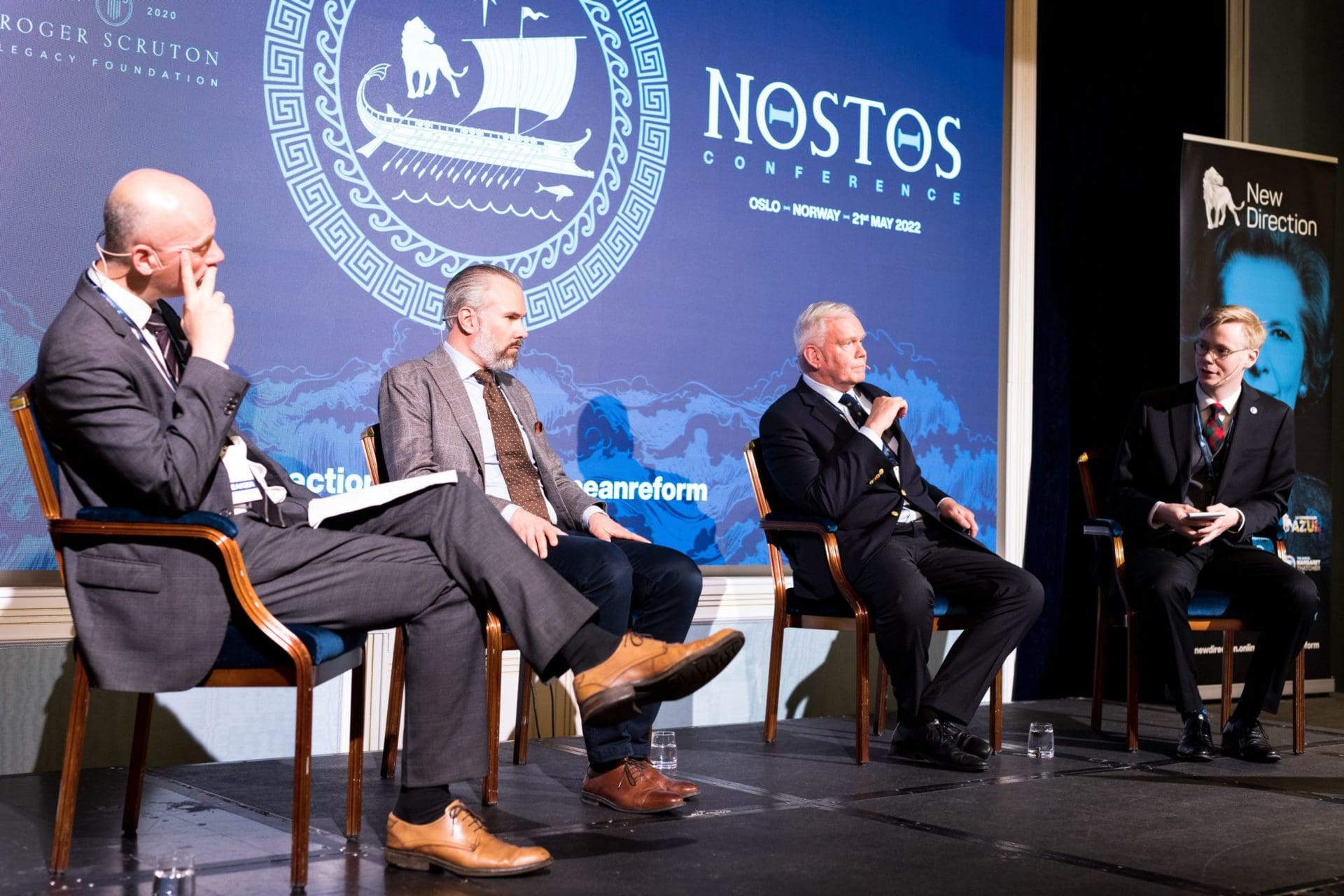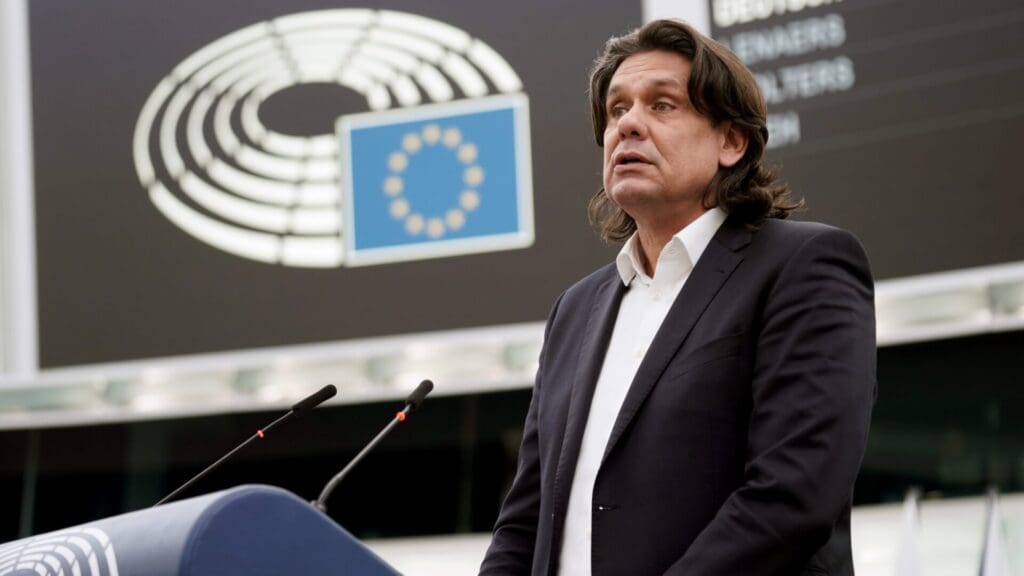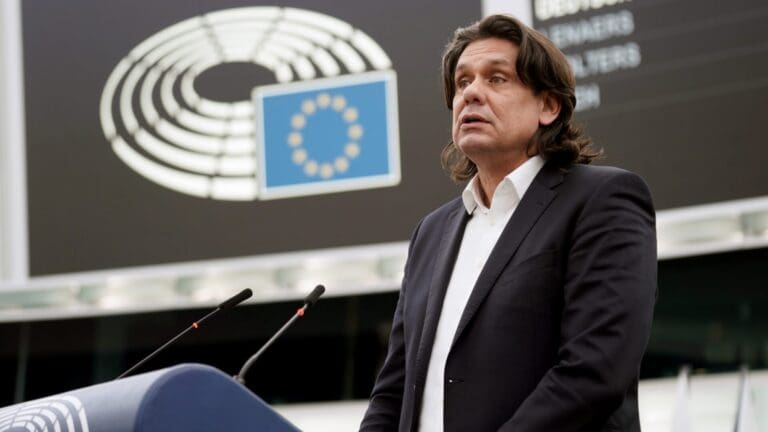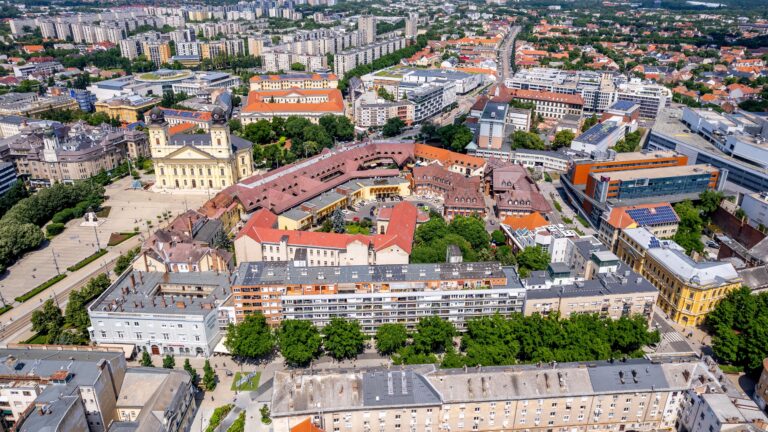When an English gentleman, representing a think-tank in Brussels, praises Budapest’s Scruton Café before a large audience in Oslo, one begins to wonder whether this is merely a well-crafted scene in a P.G. Wodehouse novel, or whether Hungarian conservative aspirations are genuinely having an impact beyond the country’s frontiers.
It is no coincidence that Sir Roger Scruton’s name is synonymous in Hungary with new-wave conservatism. Scruton’s significant influence on conservative thinking in post-1989 Hungary is undeniable. However, even before 1989, the English philosopher made several visits to the Central European region, including Hungary. His lectures not only provided ammunition to the intelligentsia during that crucial period of change, but also supported the spread of samizdat behind the Iron Curtain. Hungary paid tribute to the incalculable value of his contribution not long before his death in 2020, with an award personally bestowed on him by the prime minister.
Although Scruton did not deal specifically with ‘Northern conservatism’, he did make a significant contribution to the development of the conservative movement in the Nordic countries
Scruton’s thinking was not only decisive in the Central European region, it has also shaped and influenced the intellectual core of the European conservative movement for decades. It is hardly surprising, then, that there is considerable interest in the English thinker’s work in Nordic countries as well. Although Scruton did not deal specifically with ‘Northern conservatism’, he did make a significant contribution to the development of the conservative movement in the Nordic countries. Several of his books have been translated into Scandinavian languages, and he gave a number of lectures in which he presented the Danes with a straightforward suggestion: leave the European Union.
Sir Roger Scruton also had a significant influence on the latest and most exciting organization of northern conservatism: in 2016 he suggested to Øyvind Johannes Vardenær Evenstad, a philosophy student at the University of Oslo, not to become bitter about the narrow political correctness in the university world, but rather to find like-minded young conservatives and get organized. This is how, in May 2017, the Norwegian Association for All Conservative Students (Foreningen for alle conservative studenter) came to be founded, organizing a large-scale conference on 21 May 2022 entitled Nostos, which focused on Scruton’s life and heritage. The even the name of the conference was telling. Nostos is a term used in ancient Greek literature, and means ‘homecoming’: in epic literature, it signifies the homecoming of a hero at the end of long travels.
What does this mean for Northern conservatism? The conference was both a homecoming and a long journey. It was a return, in the sense that although Northern conservatism, like Hungarian conservatism, is often accused of having no independent identity, and being defined solely by Anglo-Saxon authors, in truth has roots deep in the past. As Jacob Söderbaum, a member of The Vanenburg Society, pointed out in connection with the Swedish conservative tradition, that Edmund Burke’s famous Reflections on the Revolution in France, published in 1790, was read by the Swedish king himself, who published an independent conservative proclamation against liberalism. Hannes Gissuarson, a professor at the University of Iceland, highlighted that more than ten years before Adam Smith, Lutheran pastor Anders Chydenius argued for freedom of speech and religion, criticized mercantilism, and articulated the concept of the ‘invisible hand’ that brings self-organization and social harmony. The most distinctive element of Northern conservatism was highlighted by the Danish writer Kasper Støvring: social cohesion. This is not merely a phenomenon to be interpreted in economic terms, or as the engine of the northern political-economic model, but as ‘belonging somewhere’—one of the most fundamental elements of Northern self-identity.
In Sweden, meanwhile, conservatism had become an underground movement by the 2000s, yet today we can observe that three parties have some interest in conservatism
At the same time, the Nostos Conference was an important milestone in the long journey, as by the 20th century, Northern conservatism had become primarily an economic theory of free trade, private property, and the perception of limited government, as espoused by prominent authors such as Gustav Cassel and Eli Heckscher, as well as economists such as the Swede Bertil Gotthard Ohlin and the Norwegian Ole-Jacob Hoff. In Sweden, meanwhile, conservatism had become an underground movement by the 2000s, yet today we can observe that three parties have some interest in conservatism. Rediscovering the legacy of Sir Roger Scruton may also give new impetus to Northern conservatism on this long journey, a goal to which Professor Ferenc Hörcher’s wide-ranging presentation at the conference was a major contribution.
What is the lesson for conservatism in Hungary? On the one hand, it is important to see that the wave of new conservatism in the country does not stand alone, but is part of a process unfolding across Europe. Taking on and nurturing the legacy of Sir Roger Scruton is our shared task, in spite of the countless attacks he was subjected to in his homeland even in the last stages of his life because of his independent-minded views. Thirdly—and this is perhaps one of our most important homework assignments—let us dare to return to our conservative traditions in Hungary, starting with the Dessewffy brothers.
Translated by Thomas Sneddon








